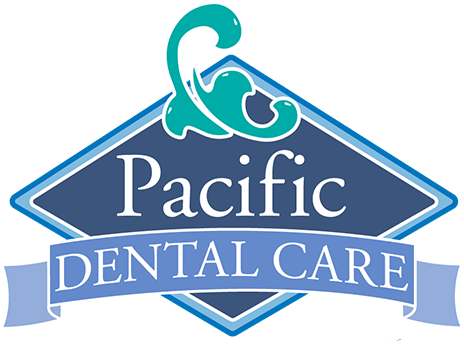Oral Appliances
Non-invasive Innovation
While our goal is to help you maintain your teeth for a lifetime, sometimes teeth need to be removed. Wisdom teeth, extra teeth, or very crowded teeth present situations that may mean treatment involving removal. In some cases, severely decayed or cracked teeth, or those missing large amounts of supporting bone leave extraction as the only viable option.
Regardless of your dental needs, your comfort is always our number one priority at Pacific Dental Care in Pleasanton, CA. Our doctors will discuss your unique situation and determine the best way to help you receive the treatments you need to maintain optimal oral health. Few patients look forward to any minor surgical procedure, but today's methods provide the safest, least invasive care possible.
Breathe Easier, Sleep Better
We're concerned about the overall health of our patients, including their sleep health. Many people suffer needlessly from dangerous sleep disruptive disorders that keep them from getting enough oxygen at night. The risk of a heart attack is 23 times more likely than average with a sleep disorder, and 92% of stroke victims live unknowingly with sleep apnea before having a stroke. Our training allows us to offer you education and treatment surrounding sleep health most simply and cost-effectively possible.
Estimates suggest that more than twelve million Americans have obstructive sleep apnea (OSA). Most cases are still undiagnosed, contributing to diabetes, high blood pressure, hypertension, congestive heart failure, coronary artery disease, and traffic accidents related to drowsy driving. Dentistry serves a vital role in treating this silent epidemic. The American Academy of Sleep Medicine recommends oral appliances as primary therapy for the treatment of mild to moderate obstructive sleep apnea and for patients with severe sleep apnea who can't tolerate CPAP treatment.
What is OSA?
OSA is a breathing disorder characterized by brief interruptions of breathing during sleep due to a blockage in the airway. Obstructions occur when throat muscles, the tongue, tonsils, or the soft palate relax and cover the airway, preventing breathing. The obstruction results in a severe drop in blood oxygen levels throughout the night.
OSA is typically diagnosed using a sleep study. During a sleep study, a sleep physician monitors brain activity and body system functions while a patient rests overnight at a sleep lab. The specialist evaluates the data collected to diagnose sleep disorders and recommend treatment. If prescribed by the sleep doctor, a dentist trained in sleep medicine works with them to treat obstructive sleep apnea with oral appliance therapy. In some cases, a home sleep study may also be possible instead of reporting to a sleep lab.
How Is OSA Treated?
Treatment of snoring and obstructive sleep apnea may involve surgery, CPAP or BiPAP machines, or oral appliance therapy. Oral appliances provide the least invasive option and are often a good choice for treatment of mild to moderate OSA. A carefully calibrated appliance like a CPAP or BiPAP can comfortably help hold the jaw in a precise position throughout the night.
All treatment recommendations should be made in conjunction with your sleep physician. If appliance therapy is selected, it's essential the right positioning is used to maintain an open airway.
What You Don't Know Can Hurt
Normal chewing results in brief intervals of contact between teeth. Under normal circumstances, your teeth should only contact for about 5 minutes each day. Slight amounts of wear over years of use is common.
Sometimes teeth develop a flattened, worn appearance. X-rays may show unusually thin layers of enamel as if sandpaper has been drawn across the chewing surfaces of the teeth. Daily chewing shouldn't erode the enamel so much.
You Don't Even Know
Some patients develop a subconscious habit of grinding their teeth, either during the day or at night. In many cases, the abrasive action occurs only during sleep, and for only a few seconds at a time. If you wake up with a sore jaw or a morning headache, chances are you are grinding your teeth during the night. In some patients, enlarged jaw muscles develop on the sides of the face from this nighttime grinding. These muscles are, ounce for ounce, the strongest in the body, which means they can do a lot of unnecessary damage.
The unusual activity not only wears down teeth and strains the overworked muscles, but compressive forces can also damage the complex jaw joints on one or both sides. Damage to the joints may lead to arthritic changes, chronic pain, and popping or clicking. Once these changes settle in, reversing their condition may become impossible.
Avoiding Irreversible Damage
If you're waking up with a sore jaw or headaches, or you've noticed chips or flattening of your teeth, a consult with our doctors is recommended. The sooner the problem receives attention, the less damage there will be. Often a custom-fit night guard will eliminate the symptoms while protecting your precious enamel.
Daytime habits of clenching or grinding deserve attention too. Our doctors will analyze your bite and make sure they're moving against each other properly when you chew. Regardless of the cause, reducing the strain on the jaw and your teeth as quickly as possible can save you money and time spent in the dental chair.
Patient Testimonials

Slide title
I have been a patient of PDC for more than 10 years. During that period I have has the great the great pleasurer to meet some great people. working hard to deliver the best dental care in the valley.. They are friendly, efficient and more important highly professional.
- Jim S, Google Review
Button

